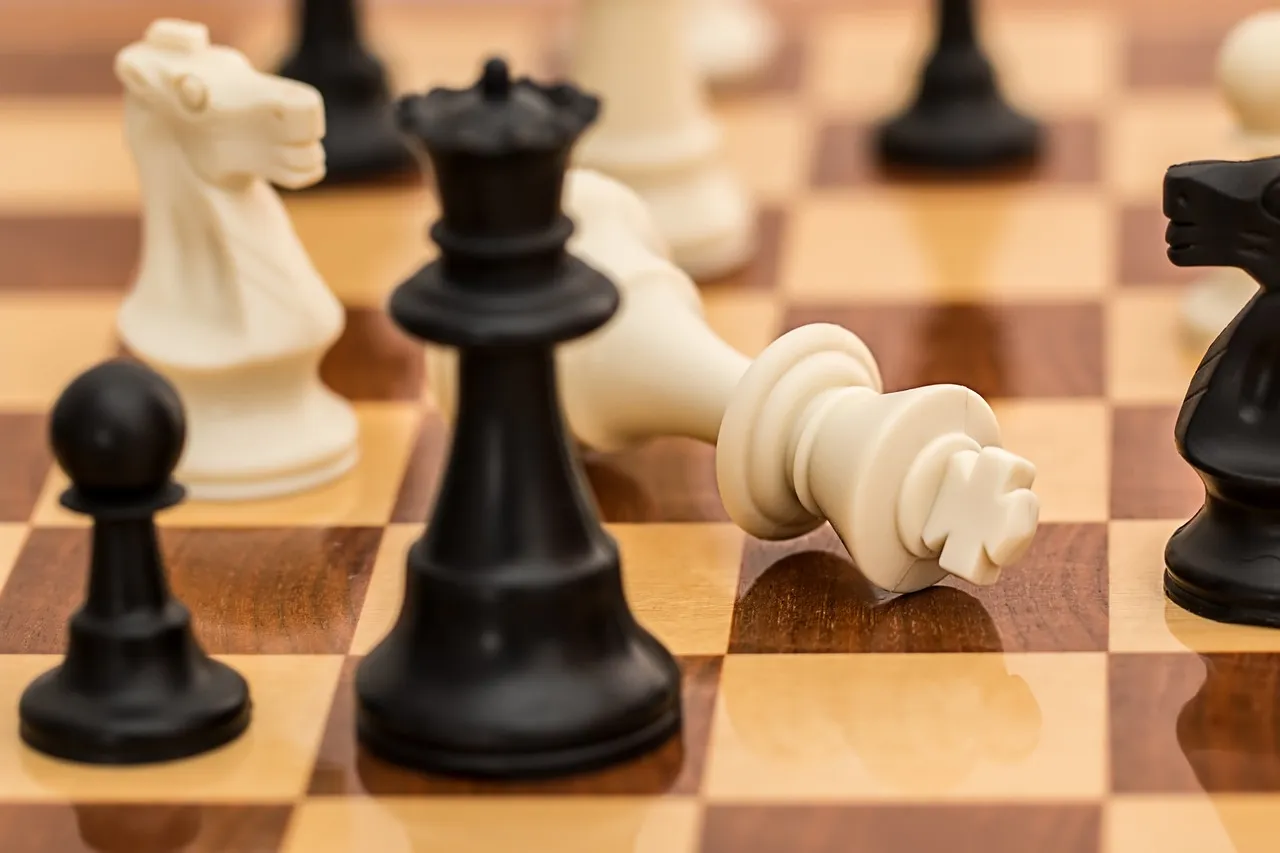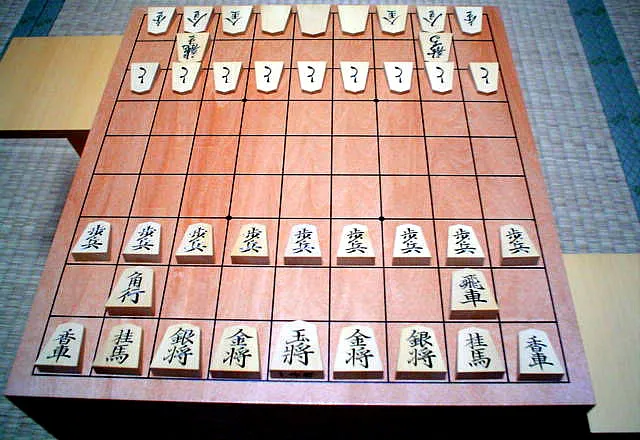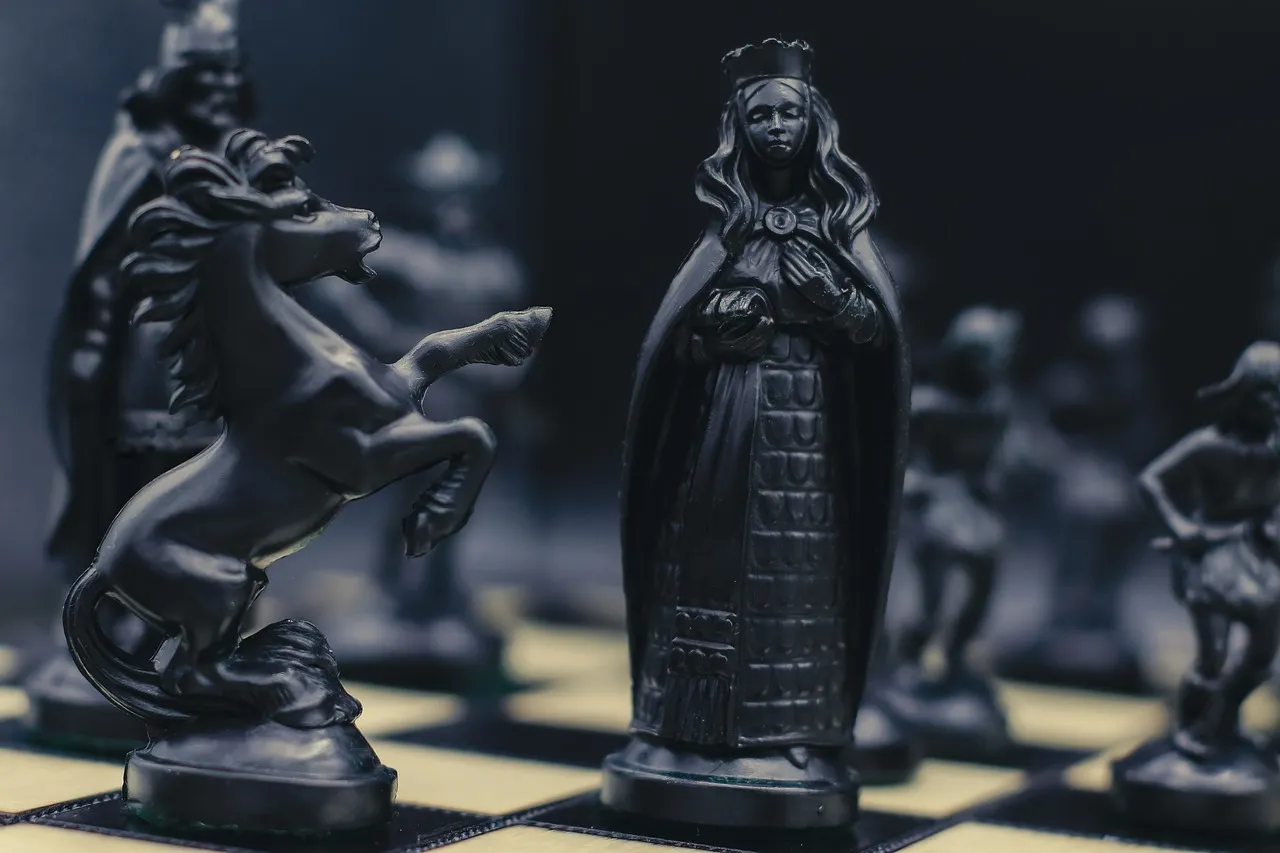A few days ago I started to teach my son chess.

Image by Steve Buissinne from Pixabay
A few years ago I tried to teach him shogi, i.e. Japanese chess. Shogi evolved from the same game that chess did, but it developed differently and as a result is a bit different from chess (for example, captured pieces can be played). It's fun, if different from what most of you are familiar with. Shogi's big obstacle to foreigners who are interested is that all the pieces look the same, only different from each other by a kanji label. This also makes it hard for kids to learn.
To make it easier and more attractive to kids, many kids sets will replace the kanji with fun pictures. We bought one of these for my son and I tried to teach him, but he wasn't interested. (We tried again with our second son, but he also wasn't interested. Oh well!)

From Wikipedia
I kind of figured I would wait until the oldest hit his teens and then I'd try again. So I was surprised when about a week ago he came to me and asked me to teach him not shogi, but chess. As far as I know, chess isn't especially common in Japan. It's probably as common here as shogi is in America. But evidently one of his friends at school played it and told him about it, so he became interested.
I don't remember when I first learned chess. I might have been around the same age as he is now, which is ten. I learned from my dad and played with him for awhile as well as some of my uncles. At some point I switched to computer chess. I don't think I had gotten good enough to beat the adults, but they probably got tired of making time to play me. I had Chessmaster on my Commodore 64. Several years later when my parents bought me an IBM PC I had Battle Chess. I played computer chess quite often. I never studied the game. I didn't know anything of the opening, the midgame, or the endgame, nor did I know any of the common formations that people memorize. However, by playing the computer relatively often, I was able to slowly get good enough to at least beat it occasionally on the lower levels, as well as beat friends whenever we played. Over the years since I've played every now and then, but never often enough to be motivated to actually study the game or improve my playing.

Back to my son wanting to play. I know a little more now than I did back then, but still not a lot. At least it seems like I know enough to teach a ten-year-old boy. I taught him the basics: how the pieces move, how to form a basic strategy to checkmate the king, how to always be mindful of traps your opponent may be setting for you, how to always play at least a few turns ahead, and so on.
He's taken to it much better than I expected. My wife and I made the mistake of buying him a Nintendo Switch a few years ago. Just about every kid in Japan seems to have one and he felt left out, so we bought it. We limit him to 15-30 minutes per day upon completion of his homework, but even with that limit it seems like he has become completely obsessed with it. Due to that, I imagined chess would be too slow and not exciting enough to hold his interest. I was completely surprised when rather than thinking it slow and boring, he's really gotten into it and wants to play all the time. Pleasantly surprised.

Image by Desiré 🙏 Dazzy 🎹🎶 K-e-k-u-l-é from Pixabay
We've been playing about once per day since then. I don't go easy on him. I was told once by someone I respect that we should never go easy on kids because it gives them the wrong message. It teaches them that they can expect the world to always go easy on them, which is far from the case, and may send the message that someone will always be there to hold their hand and do things for them. It also shows a lack of respect; this isn't intended of course, but some kids so pick up the feeling Oh you don't think I'm any good, so you aren't even trying. Beyond that, it robs them of the satisfaction of improving to the point of beating us. I look forward to that. That hard won victory is really good for them. This isn't to say we should viciously destroy them in the game, but we shouldn't roll over and make deliberately bad moves to either let them win or prolong the game.
You may agree with that or not, but I've always thought it pretty good advice. For that reason in chess I haven't taken it easy on my son. The only time I made a few bad moves on purpose was when I was allowing him to walk into a stalemate so that I could teach him about that and show him that even if you can't win, you can try to get the stalemate.

Anyway, so we are playing everyday and he is really into it. Still really into it, even a few weeks after we started. He hasn't beat me yet, but he has made some very smart moves that have really impressed me. We'll see if he sticks with it and when that happens!